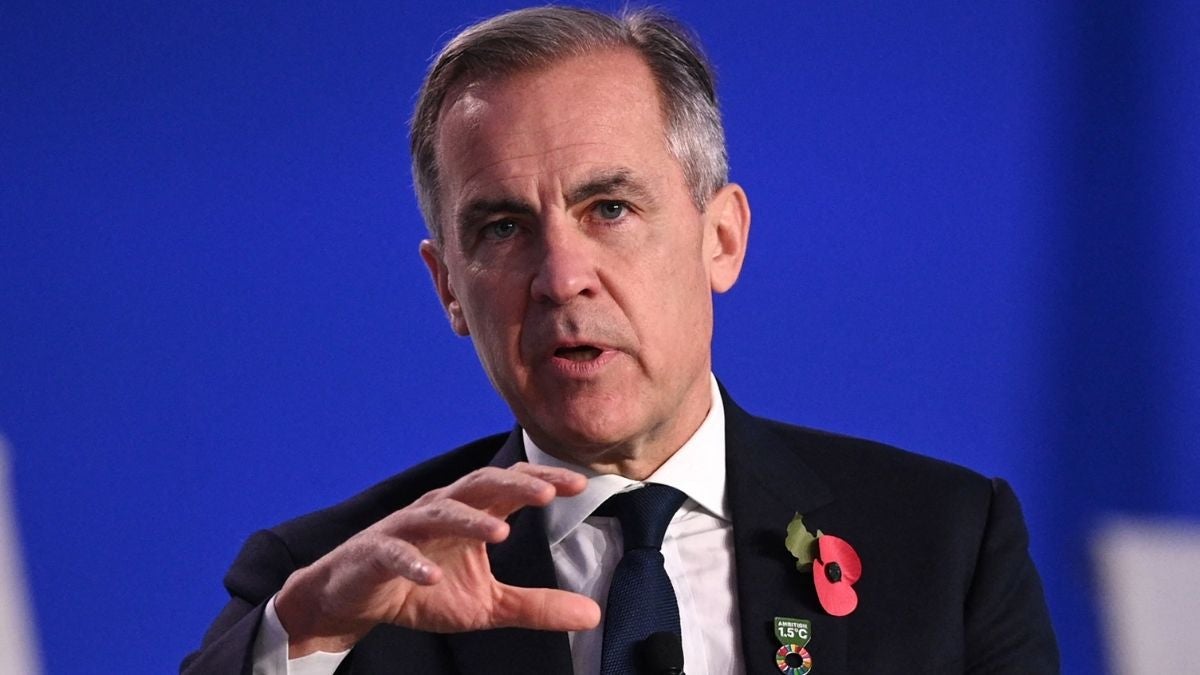
All eyes are currently on Glasgow and the COP26 summit, where world and business leaders are attempting to show their commitment to halting climate change.
Today (3 November) it is the turn of finance to demonstrate it is serious about tackling the climate crisis. The headline announcement is that 450 financial firms, representing more than $130tn in assets, are poised to help fund the green transition.
The coalition of banks, asset managers and insurers, which represent 40% of global financial assets, is being led by ex-Bank of England governor and UN special envoy Mark Carney under the Glasgow Financial Alliance for Net Zero (GFANZ).
Carney claims that the historic Paris climate agreements were followed by “disappointment” as countries failed to implement the policies they promised, only a limited number of companies introduced net-zero plans and in finance climate change was “viewed as an issue of CSR, not a strategic imperative”.
Speaking at COP26, he said: “Right here, right now is where private finance draws the line. The $130tn announced is more than what’s needed for the net-zero transition globally. A pool of that capital has been carved out for the transition in emerging and developing economies, and not at some distant point in the future, but for this decade.”
Carney was followed onto the conference stage by Indonesian finance minister Sri Mulyani, who underscored the importance of leveraging capital to help developing economies transition to net zero. “We know there is a huge financing gap,” she says. “We are estimating that our commitment [net zero by 2060 or sooner] will cost us $270bn, we don’t need $130tn. It is needed because our state budget only covers 21.3% of the climate mitigation and financing needs, the rest must come from the private sector.”
What is GFANZ?
When it first launched in April this year, the GFANZ totalled 43 members with $28.5tn in assets. Its current membership includes insurers such as Allianz, AXA and Zurich; Santander, Bank of America and HSBC from the banking sector; and asset managers such as Blackrock.
JP Morgan Chase and Goldman Sachs both initially hesitated to join the initiative. Persuading the two US banking giants to sign up to the alliance in October represented somewhat of a coup for Carney. The total number of signatories now stands at 450 financial institutions from 45 different countries.
As members, they must commit to science-based targets to reach net zero by 2050 and align with the UN-backed Race to Zero campaign, which is aiming for a 50% reduction in global emissions by 2030 and requires transparent annual reporting.
UK chancellor Rishi Sunak describes GFANZ as “an historic wall of capital for the net-zero transition around the world”. Alongside the GFANZ commitments, Sunak set out plans to make the UK the “first ever net-zero aligned financial centre”. Under the proposals, financial institutions and listed companies will be required to publish net-zero transition plans, which demonstrate how they will decarbonise by 2050.
But climate experts and campaign groups believe the alliance of financial institutions, which have historically invested trillions of dollars in the fossil fuel industry, are unlikely to live up to today’s claims.
Is finance really decarbonising?
Despite the scale of the commitment and the huge sums involved, French NGO Reclaim Finance claims the net-zero alliances that make up GFANZ don’t make it mandatory for signatories to halt investments in fossil fuel expansion and therefore questions its commitment.
Daniela Gabor, professor of economics and macro finance at the University of the West of England, also has concerns, calling the announcements disappointing and adding that they “show the limits to the voluntary decarbonisation approach that has dominated the central banking world”.
She adds: “We know that we urgently need a credible plan to decarbonise private finance, shrink its carbon footprint and reverse its systemic greenwashing. None of the measures announced today will achieve that. Mandatory disclosure of net-zero transition plans are the weakest measure in the regulatory toolbox.”
Gabor claims that the $130tn figure is “pure greenwashing noise” because much of this figure represents loans to fossil fuel companies and other businesses involved in ecologically destructive practices. She says that, instead, today’s finance announcements should have focused on “concrete plans for central banks and regulators to penalise dirty lending and to green their own balance sheets”.
Others are concerned that the new financial rules, outlined by Sunak, will achieve little. Greenpeace UK’s head of politics Rebecca Newsom says: “These new rules seem to allow plenty of wiggle room for financial institutions to continue with business as usual, rather than ‘rewiring’ the system as the chancellor claims. Transition pathways must be genuinely science-based, not determined by what industry participants in cozy alliances consider best practice at any given time.”
In an interview with Bloomberg, Carney claimed financial institutions “are going to mark their own homework” when it comes to reporting their client’s emissions. Climate campaigners will question whether they can be trusted to do so.

All eyes are currently on Glasgow and the COP26 summit, where world and business leaders are attempting to show their commitment to halting climate change.
Today (3 November) it is the turn of finance to demonstrate it is serious about tackling the climate crisis. The headline announcement is that 450 financial firms, representing more than $130tn in assets, are poised to help fund the green transition.
The coalition of banks, asset managers and insurers, which represent 40% of global financial assets, is being led by ex-Bank of England governor and UN special envoy Mark Carney under the Glasgow Financial Alliance for Net Zero (GFANZ).
